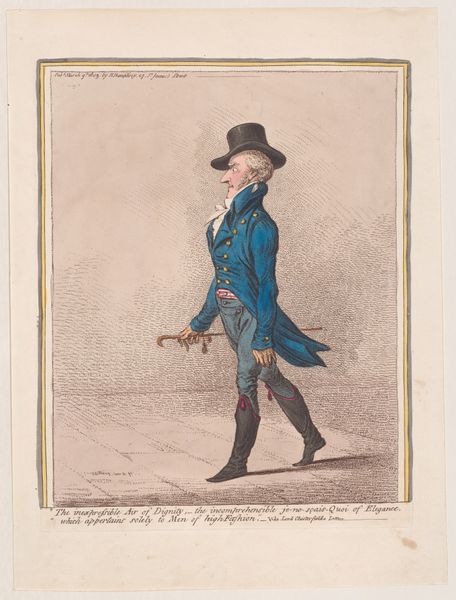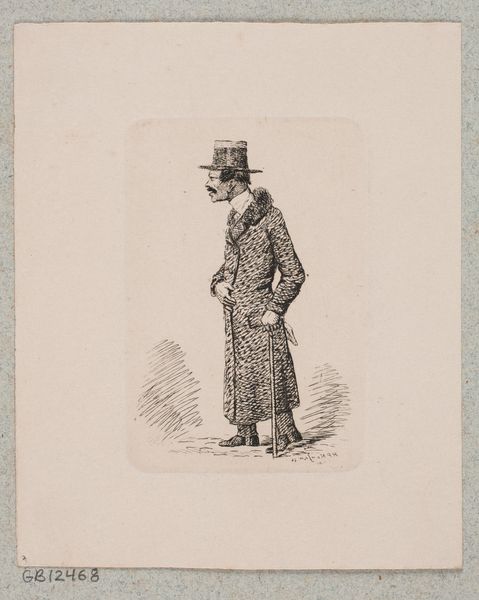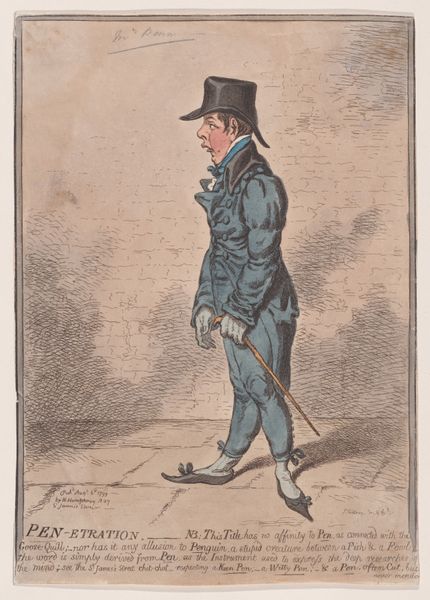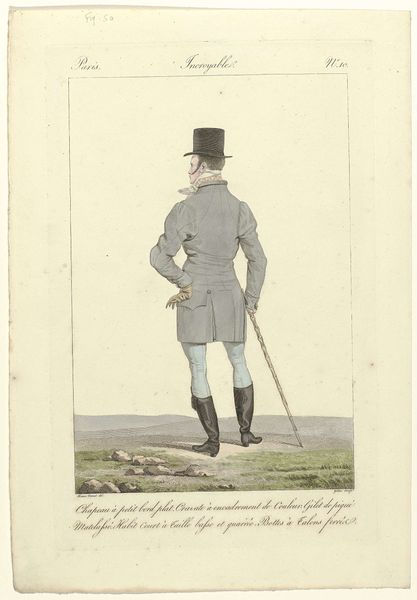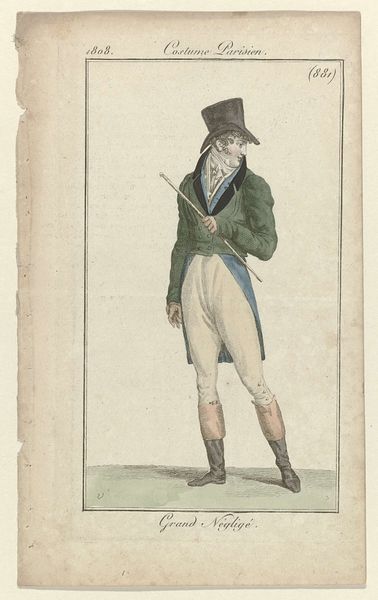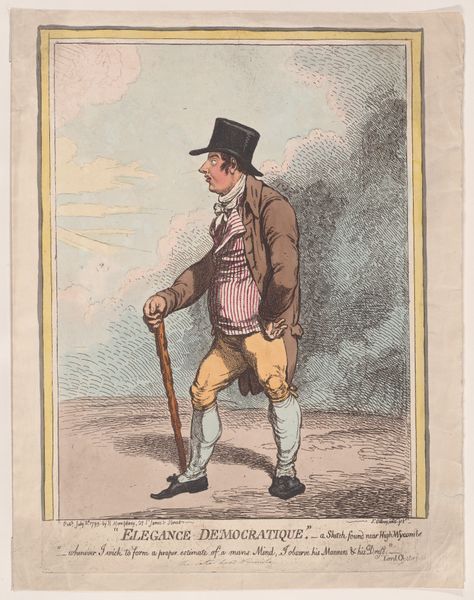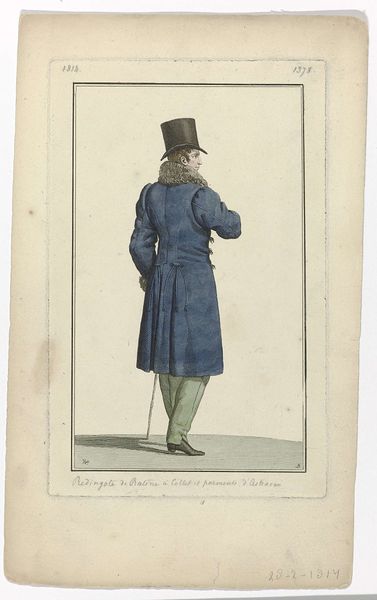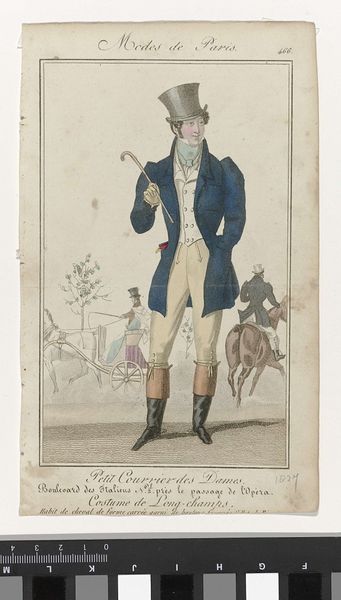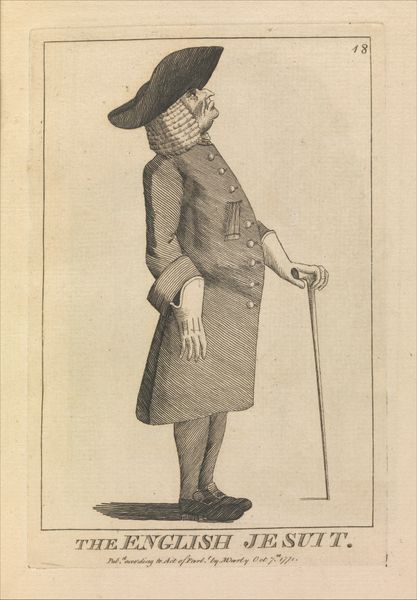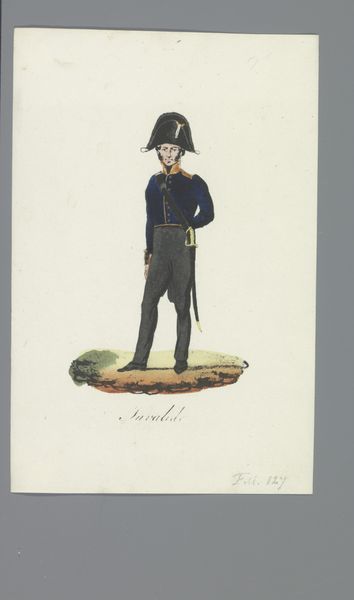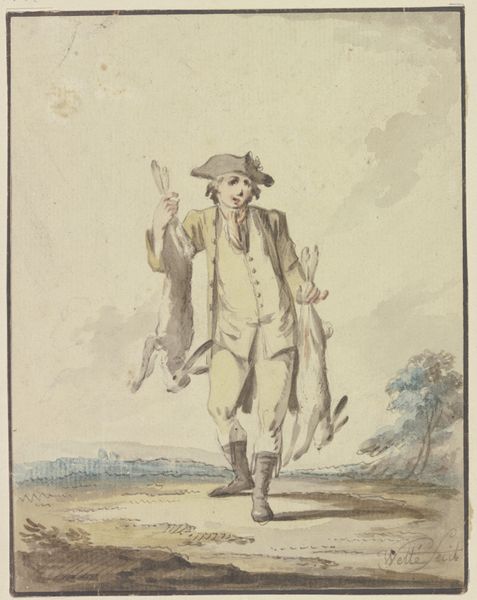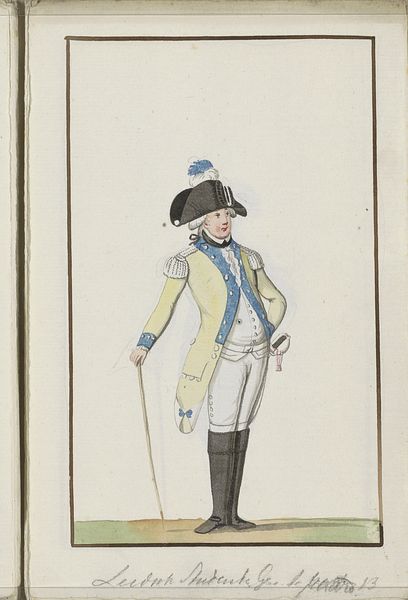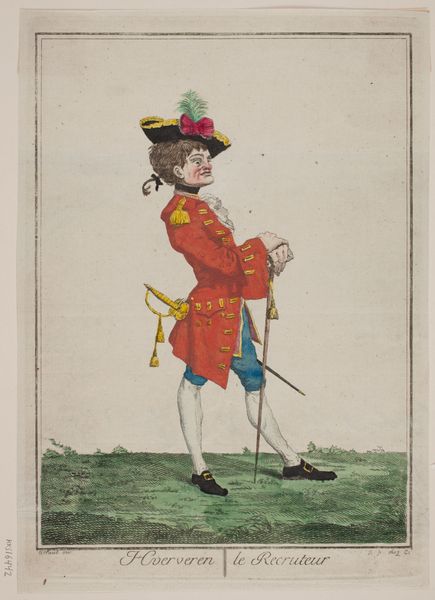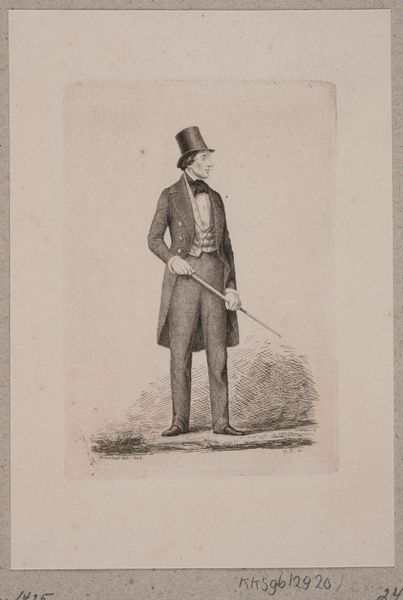
drawing, paper, ink, pencil
#
portrait
#
drawing
#
landscape
#
figuration
#
paper
#
ink
#
romanticism
#
pencil
#
genre-painting
#
academic-art
Dimensions: height 104 mm, width 66 mm
Copyright: Rijks Museum: Open Domain
Editor: This is “Bartholomeus Fersier, wandelend,” a drawing from around 1795-1813 by Joannes Pieter Visser Bender, created with pencil and ink on paper. It strikes me as a very serene scene, almost staged. What do you see in this piece? Curator: Immediately, the stark contrast between the detailed portrait and the softer, almost dreamlike landscape behind him grabs my attention. Do you notice how Bartholomeus is sharply defined, nearly imposing, while the backdrop—the boats, the suggestion of a windmill—seems to fade into a collective memory of the Dutch countryside? Editor: I see what you mean! It's like he’s present and the background is a fleeting thought. Curator: Precisely. The landscape itself becomes a symbol. A windmill traditionally signifies prosperity and progress, the boats hinting at exploration and trade. The figure and his surroundings evoke a sense of Dutch identity at that time, straddling the line between tradition and a world that's rapidly changing. Do you get that sense? Editor: Yes, I hadn’t thought about it like that, but it really highlights the figure’s connection to that particular moment in history. It seems to root him. Curator: Think of the hat as well. A rather traditional, somewhat archaic form for the time, but nonetheless holding steadfast to a specific period. What could that suggest? Editor: Maybe he is self-consciously aware of this connection with tradition and wants to assert it. I'll never look at a background in a portrait the same way! Curator: Excellent! Recognizing these symbolic visual cues enhances our comprehension and emotional experience when we engage with a piece of art. It's fascinating how objects can become storytellers across time.
Comments
No comments
Be the first to comment and join the conversation on the ultimate creative platform.
